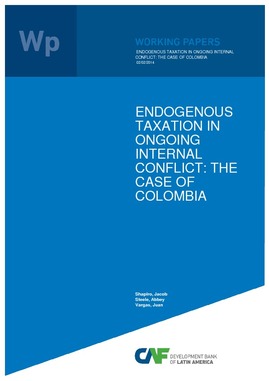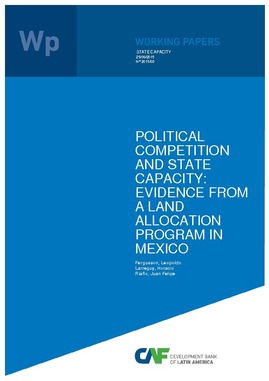Endogenous Taxation in Ongoing Internal Conflict: The Case of Colombia
Abstract
Recent empirical evidence at the cross-country and subnational levels suggests that internal conflicts harm state capacity and tax performance. On the face of it this is odd: internal conflict should create strong incentives for governments to develop the fiscal capacity necessary to assert full control over their territory, just as sociological theories argue external conflict did. We argue that one reason for the pattern is that internal conflict enables groups with de facto power to capture local political and economic institutions. We test this mechanism in the case of Colombia using data on tax performance and institutions in each of Colombia’s 1,120 municipalities. We show that municipalities most affected by internal conflict have tax institutions consistent with the preferences of the parties engaging in violence. Those suffering right-wing violence feature higher total property tax revenues and more land formalization. Municipalities with substantial left-wing guerrilla violence collected less tax revenue and saw less land formalization. These outcomes translate into differential level of social investment and social outcomes. Our findings provide the first concrete evidence that internal armed conflict helps interest groups capture municipal institutions for their own private benefit.
Subject
Country / Region
Date
2014-02Cite this publication
Belongs to collection
Items Relacionados
Electoral Consequences of Violent Crime: Evidence from Venezuela
To what extent to do voters hold political incumbents accountable for policy outcomes? This paper considers retrospective voting in the context of violent ...
Public-Private Partnership in Latin America. Learning from experience
In recent years, economic growth in Latin America has led to increased investment opportunities for the private sector, while legal transformation, ...
Political constraints and state capacity: Evidence from a land allocation program in Mexico
In this paper we contribute to the understanding of the politics of state building. We emphasize that incumbent clientelistic parties might have incentives ...






